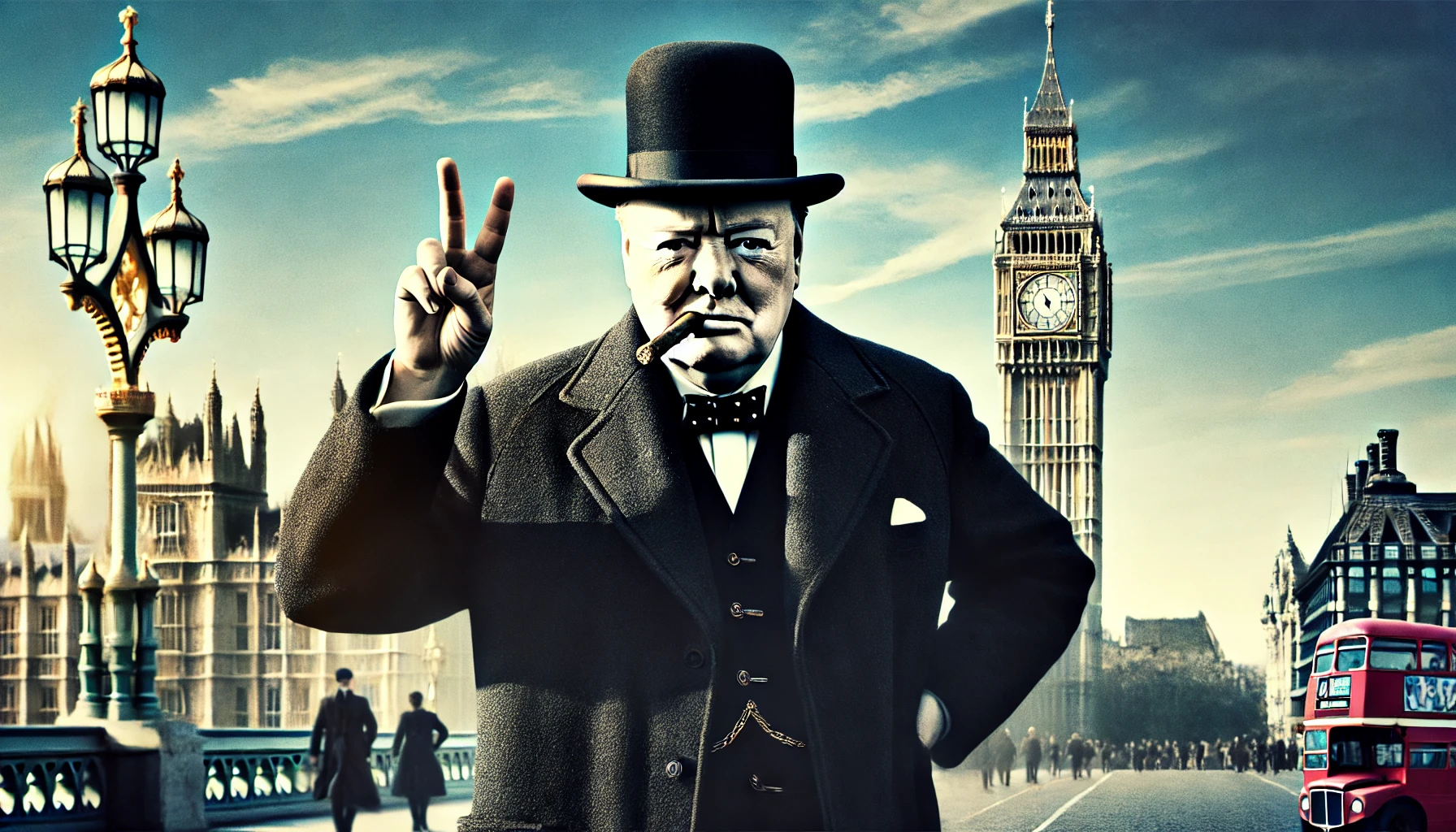Winston Churchill, the iconic British Prime Minister, is celebrated for his leadership during World War II. However, behind his robust public persona lurked a man who struggled with significant mental health challenges. This biography will explore Churchill’s life, highlighting his personality, achievements and struggles with mental health, all while maintaining a humorous and positive tone to inspire and enlighten readers.
Childhood and Education
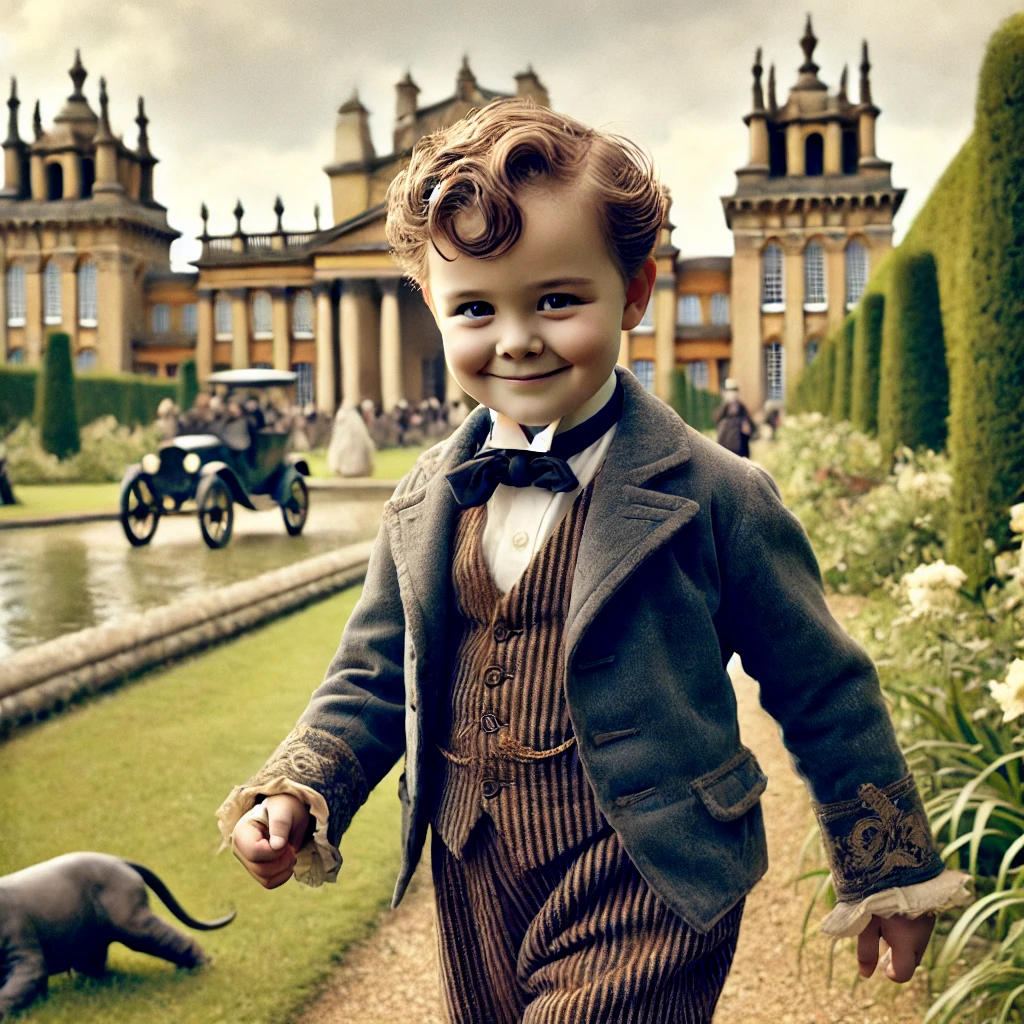
Winston Leonard Spencer Churchill was born on November 30, 1874, at Blenheim Palace, England. He came from an aristocratic family; his father, Lord Randolph Churchill, was a prominent politician, and his mother, Jennie Jerome, was an American socialite. Winston’s childhood was marked by a distant relationship with his parents, especially his father, whose high expectations and harsh criticism affected him deeply.
Churchill’s education began at Harrow School, where he struggled academically, except in English and history. Despite his poor academic performance, Churchill’s tenacity and resilience shone through. He eventually entered the Royal Military Academy at Sandhurst, where he excelled and began a military career.
Curiosity:
Churchill’s school reports often described him as “naughty” and “troublesome,” just like many of us who were caught passing notes in class. But hey, if Winston was able to become Prime Minister, there’s hope for us all!
Military Career and Early Years in Politics
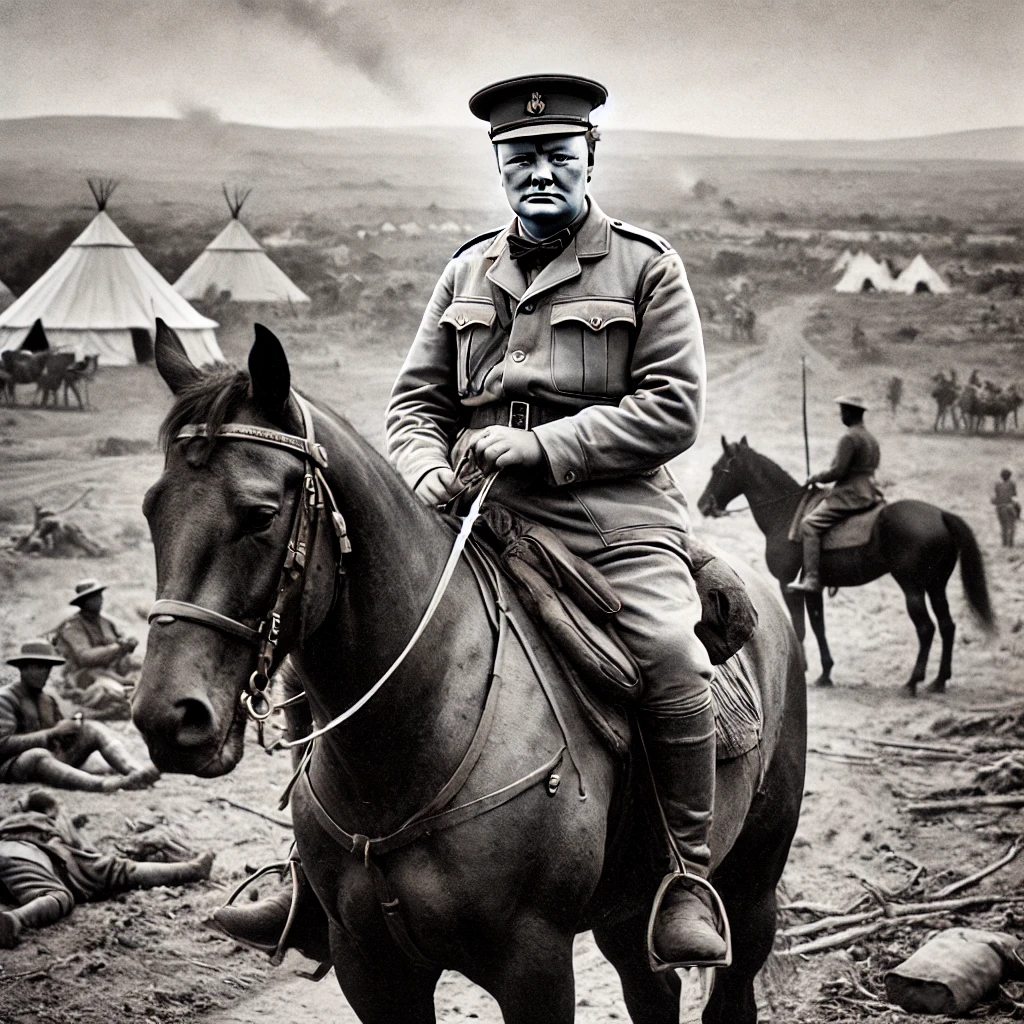 Churchill’s military career was adventurous and colorful. He served in Cuba, India, Sudan and South Africa, where he was captured and made a daring escape during the Boer War. His bravery and his journalistic accounts of the war brought him national fame and laid the foundation for his political career.
Churchill’s military career was adventurous and colorful. He served in Cuba, India, Sudan and South Africa, where he was captured and made a daring escape during the Boer War. His bravery and his journalistic accounts of the war brought him national fame and laid the foundation for his political career.
In 1900, Churchill was elected Member of Parliament (MP) for Oldham. His early years in politics saw him switch from the Conservative Party to the Liberal Party and back to the Conservatives. Despite his political zigzags, his charisma and oratorical skills won him many admirers and some enemies.
Curiosity:
Churchill’s escape from a prisoner of war camp involved taking a train and hiding in a coal mine, which sounds like the plot of an action movie – imagine Jason Statham in the role of Churchill!
Leadership During World War II
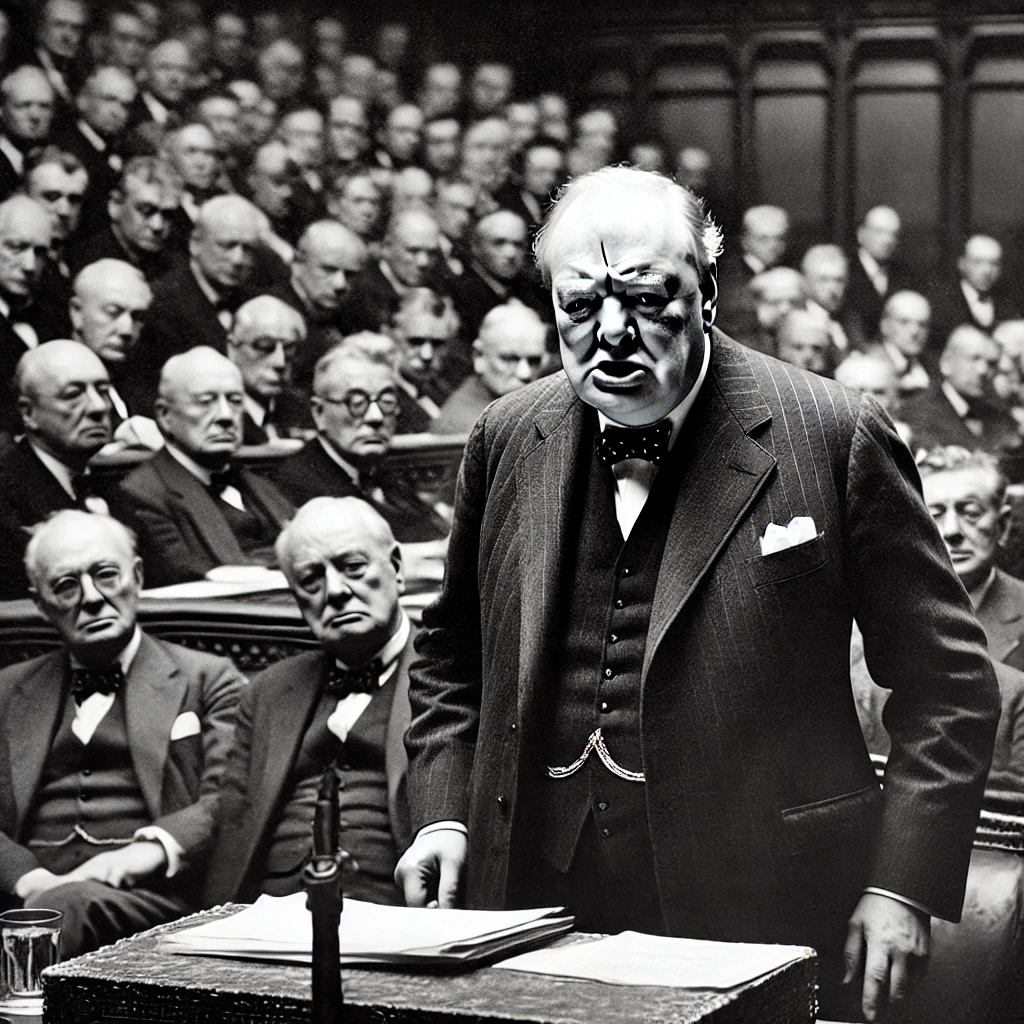 Churchill’s most defining moment came during World War II, when he became Prime Minister in 1940. His indomitable spirit, inspirational speeches and refusal to surrender inspired a beleaguered nation. Phrases such as “We will fight on the beaches” and “Never, never, never surrender” became rallying cries for British resistance against Nazi Germany.
Churchill’s most defining moment came during World War II, when he became Prime Minister in 1940. His indomitable spirit, inspirational speeches and refusal to surrender inspired a beleaguered nation. Phrases such as “We will fight on the beaches” and “Never, never, never surrender” became rallying cries for British resistance against Nazi Germany.
Churchill’s leadership was not without criticism. His decision to bomb Dresden and his sometimes authoritarian style generated controversy. However, his contribution to the Allied victory is undeniable.
Curiosity:
Churchill was known for his sharp wit. When a lady accused him of being drunk, he replied, “My dear, you are ugly, but tomorrow I’ll be sober and you’ll still be ugly.” Classic Churchill.
The Black Dog: Churchill’s Struggle Against Depression
 Despite his public bravado, Churchill struggled privately with severe depression, which he called his “black dog.” This metaphor aptly describes the persistent and often debilitating nature of his mental health challenges. His depression was characterized by profound episodes of sadness, lethargy, and a sense of hopelessness.
Despite his public bravado, Churchill struggled privately with severe depression, which he called his “black dog.” This metaphor aptly describes the persistent and often debilitating nature of his mental health challenges. His depression was characterized by profound episodes of sadness, lethargy, and a sense of hopelessness.
Churchill’s mental health challenges were compounded by his excessive alcohol consumption and strenuous workload. However, he found solace in his love of painting, bricklaying and writing. These hobbies provided him with a creative outlet and a means of managing his mental health.
Curiosity:
Churchill painted more than 500 works of art. His favorite subjects were landscapes and his beloved animals – imagine the therapeutic effect of painting while leading a nation at war!
Post-War Life and Legacy
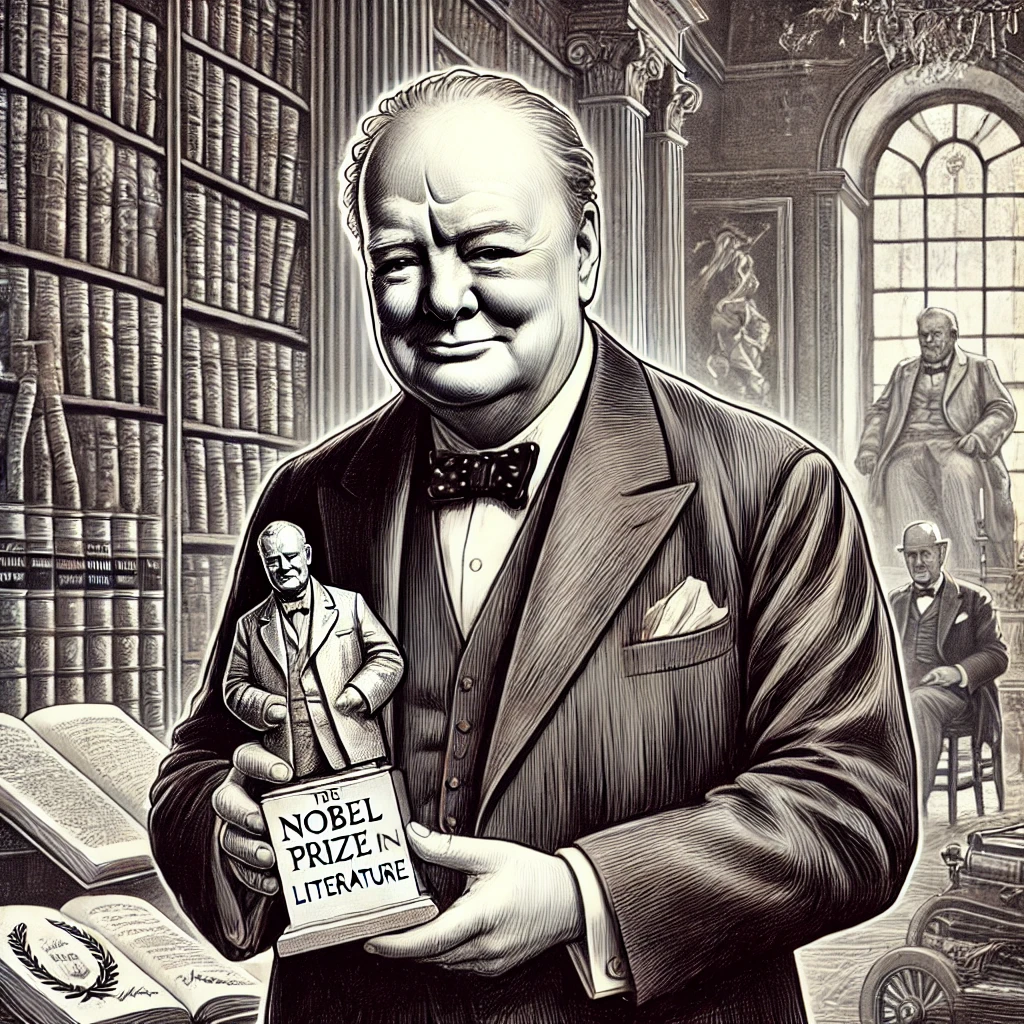 After World War II, Churchill’s political career experienced ups and downs. He lost the 1945 election, but returned as Prime Minister from 1951 to 1955. His post-war years were characterized by efforts to promote European unity and his concern about the growing influence of the Soviet Union.
After World War II, Churchill’s political career experienced ups and downs. He lost the 1945 election, but returned as Prime Minister from 1951 to 1955. His post-war years were characterized by efforts to promote European unity and his concern about the growing influence of the Soviet Union.
Churchill’s literary prowess earned him the Nobel Prize for Literature in 1953 for his historical writings, including his six-volume work “The Second World War.” He was also knighted by Queen Elizabeth II that same year, becoming Sir Winston Churchill.
Curiosity:
Churchill won the Nobel Prize for Literature, not Peace. So, for all you aspiring writers out there, keep going! You never know, your war memoir might just lead you to a Nobel.
Fighting Stigma: Churchill’s Legacy for Mental Health
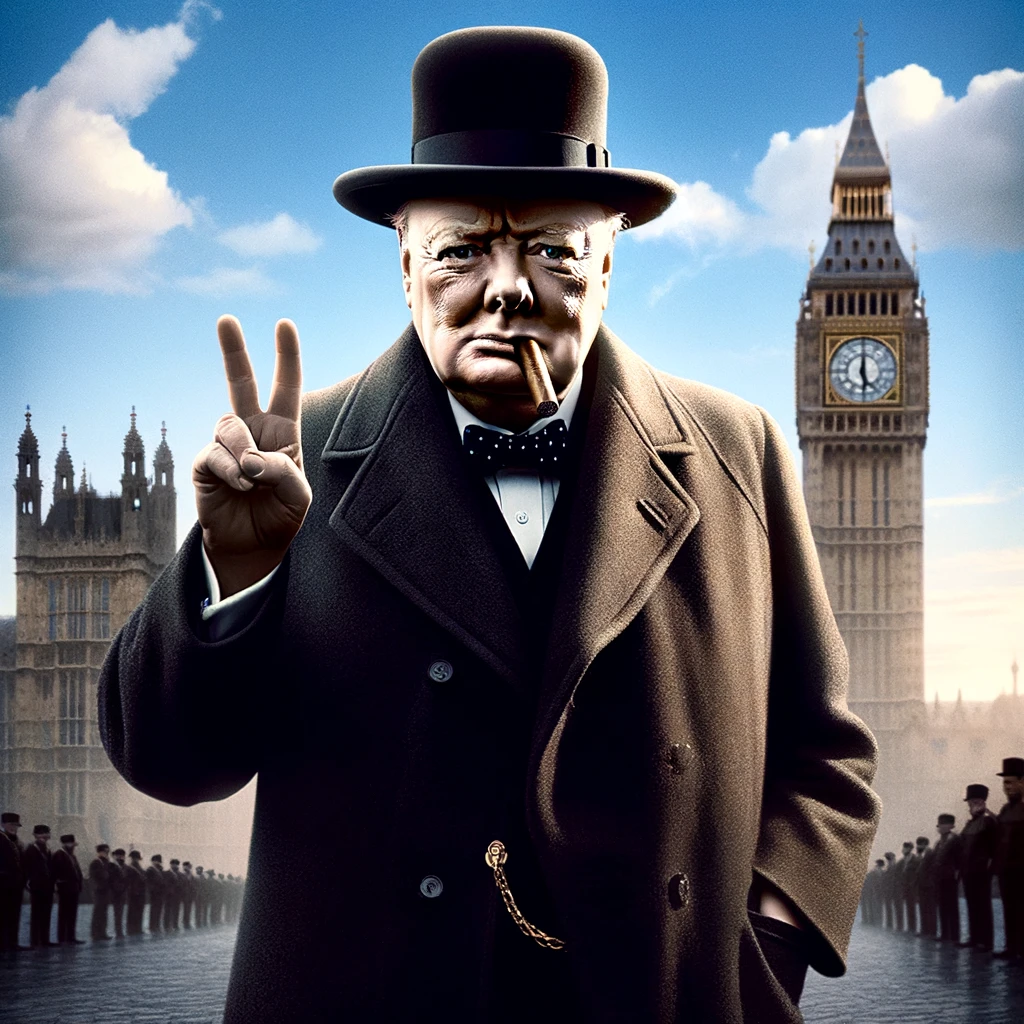 Churchill’s openness about his “black dog” serves as a powerful reminder that mental health issues can affect anyone, regardless of their accomplishments or status. His life highlights the importance of seeking help, finding healthy outlets, and not letting stigma prevent someone from living a full and impactful life.
Churchill’s openness about his “black dog” serves as a powerful reminder that mental health issues can affect anyone, regardless of their accomplishments or status. His life highlights the importance of seeking help, finding healthy outlets, and not letting stigma prevent someone from living a full and impactful life.
In recognizing her struggles, Churchill inadvertently championed the cause of mental health, highlighting that it is a universal concern. His legacy continues to inspire those facing similar battles, showing that resilience and finding support can coexist with great accomplishments.
Curiosity:
Churchill’s favorite drink was whiskey, and he reportedly started his day with a glass. While we don’t recommend this as a coping mechanism, it really adds to his larger-than-life persona.
Conclusion
Winston Churchill’s life is a testament to the power of resilience, ingenuity and the human spirit. His journey from troubled schoolboy to wartime leader, as he battled the “black dog” of the Depression, is both inspiring and enlightening. Churchill’s story reminds us that mental health is everyone’s concern and, by combating stigma, we can support those who struggle and honor the legacy of one of history’s greatest leaders.
Works by Winston Churchill:
- “The Story of the Malakand Field Force” (1898).
- “The River War” (1899)
- “London to Ladysmith via Pretoria” (1900)
- “My Early Life” (1930)
- “Marlborough: His Life and Times” (1933-1938)
- “The Second World War” (1948-1953)
- “A History of the English-Speaking Peoples” (1956-1958)
NOTE: The images in this article are merely illustrative and were created with artificial intelligence.
Sources:
- Gilbert, Martin. Churchill: A Life. London: Heinemann, 1991.
- Roberts, Andrew. Churchill: Walking with Destiny. London: Viking, 2018.
- Churchill, Winston. My Early Life. London: Thornton Butterworth, 1930.
- Cohen, Ronald I. Bibliography of the Writings of Sir Winston Churchill. London: Thoemmes Continuum, 2006.


